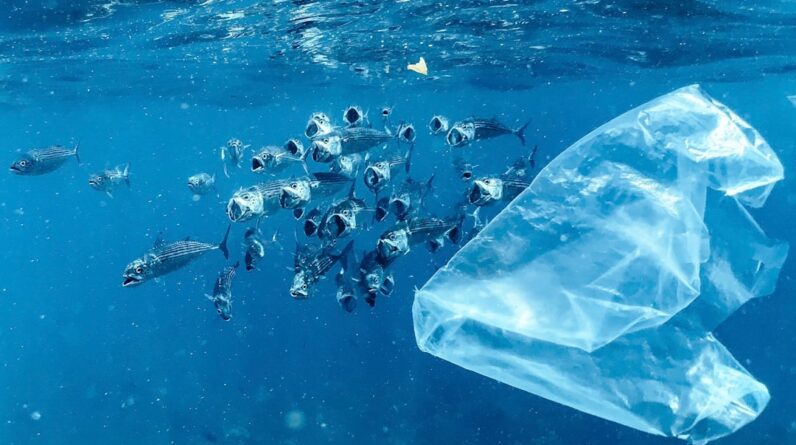
Feedback loops are fundamental mechanisms that can either amplify or dampen changes within a system. In the context of climate change, these loops play a crucial role in determining the trajectory of our planet’s climate. When you think about feedback loops, consider how they can create a cycle of cause and effect.
For instance, as global temperatures rise, ice caps melt, leading to a decrease in the Earth’s albedo effect—the ability to reflect sunlight. This, in turn, causes further warming, creating a self-perpetuating cycle that can be difficult to break. Understanding these dynamics is essential for grasping the complexities of climate change and its far-reaching impacts.
As you delve deeper into feedback loops, it becomes clear that they are not just isolated phenomena; they are interconnected with various environmental factors. For example, the loss of biodiversity can lead to weakened ecosystems, which may fail to provide essential services such as carbon sequestration. This degradation can further exacerbate climate change, creating a feedback loop that threatens both natural and human systems.
By recognizing these interdependencies, you can appreciate the urgency of addressing climate change holistically rather than in silos.
Key Takeaways
- Feedback loops can either amplify or dampen the effects of climate change, making them crucial to understand and monitor.
- Ocean oxygen loss is a significant contributor to climate change, with potential to disrupt marine ecosystems and exacerbate global warming.
- Marine ecosystems are highly vulnerable to the impacts of ocean oxygen loss, leading to biodiversity loss and negative consequences for fisheries and coastal communities.
- The connection between ocean oxygen loss and greenhouse gas emissions highlights the complex interplay between ocean health and climate change.
- Feedback loops can accelerate climate change, creating a sense of urgency for collaborative efforts to address ocean oxygen loss and mitigate its impact on the environment.
The Role of Ocean Oxygen Loss in Climate Change
The oceans are often referred to as the lungs of our planet, producing a significant portion of the oxygen we breathe while also absorbing carbon dioxide from the atmosphere. However, ocean oxygen levels are declining due to various factors, including rising temperatures and nutrient pollution. As you explore this issue, it becomes evident that the loss of oxygen in marine environments is not just an isolated problem; it is intricately linked to broader climate change dynamics.
Warmer waters hold less oxygen, and as temperatures continue to rise, this trend is expected to worsen, leading to hypoxic conditions that threaten marine life. The implications of ocean oxygen loss extend beyond marine ecosystems; they also have significant consequences for global climate patterns. When oxygen levels drop, the ability of oceans to absorb carbon dioxide diminishes, resulting in higher concentrations of greenhouse gases in the atmosphere.
This creates a vicious cycle where increased greenhouse gas emissions lead to further warming and oxygen depletion in the oceans. Understanding this relationship is crucial for developing effective strategies to combat climate change and protect marine ecosystems.
Impact of Ocean Oxygen Loss on Marine Ecosystems

As you consider the impact of ocean oxygen loss on marine ecosystems, it becomes clear that the consequences are profound and far-reaching. Marine organisms, particularly those that rely on aerobic respiration, are directly affected by declining oxygen levels. Fish, crustaceans, and other marine life may experience stress or even mortality in hypoxic conditions, leading to shifts in species distribution and abundance.
This disruption can have cascading effects throughout the food web, ultimately impacting human communities that rely on these resources for their livelihoods. Moreover, the loss of oxygen can lead to the proliferation of harmful algal blooms, which thrive in nutrient-rich but low-oxygen environments. These blooms can produce toxins that harm marine life and pose risks to human health.
As you reflect on these challenges, it becomes evident that ocean oxygen loss is not merely an environmental issue; it is also a social and economic one. Coastal communities that depend on fishing and tourism may face significant challenges as marine ecosystems become increasingly compromised.
Connection between Ocean Oxygen Loss and Greenhouse Gas Emissions
The relationship between ocean oxygen loss and greenhouse gas emissions is complex yet critical to understanding climate change dynamics. As you explore this connection, you will find that the oceans play a dual role: they act as both a carbon sink and a source of oxygen. However, when oxygen levels decline, the oceans’ capacity to sequester carbon diminishes, leading to an increase in atmospheric carbon dioxide concentrations.
This rise in greenhouse gases contributes to global warming, which further exacerbates ocean deoxygenation. Additionally, the processes that lead to ocean oxygen loss—such as nutrient runoff from agriculture—are often driven by human activities that also increase greenhouse gas emissions. For instance, fertilizers used in farming can wash into waterways and eventually reach the ocean, promoting algal blooms that deplete oxygen levels.
By recognizing this interconnectedness, you can appreciate the importance of addressing both ocean health and greenhouse gas emissions simultaneously to mitigate climate change effectively.
Feedback Loops and the Acceleration of Climate Change
Feedback loops are not just theoretical concepts; they are real processes that can accelerate climate change in alarming ways. As you examine these loops more closely, you will see how they create a chain reaction that can lead to rapid environmental changes. For example, as polar ice melts due to rising temperatures, less sunlight is reflected back into space, resulting in further warming—a classic positive feedback loop.
This acceleration can lead to tipping points where ecosystems may shift irreversibly. In the context of ocean oxygen loss, feedback loops also play a significant role. The decline in oxygen levels can lead to increased greenhouse gas emissions from decomposing organic matter on the ocean floor.
This release of methane—a potent greenhouse gas—can further exacerbate global warming and create additional stress on marine ecosystems. Understanding these feedback mechanisms is essential for developing effective climate strategies that address not only the symptoms but also the root causes of climate change.
Addressing Ocean Oxygen Loss and Climate Change

To effectively tackle ocean oxygen loss and its implications for climate change, a multifaceted approach is necessary. As you consider potential solutions, it becomes clear that reducing nutrient pollution is paramount. Implementing sustainable agricultural practices can help minimize runoff into waterways, thereby reducing the nutrient load that contributes to algal blooms and subsequent oxygen depletion in oceans.
Additionally, promoting responsible fishing practices can help maintain healthy marine populations that are better equipped to withstand changing conditions. Another critical aspect of addressing ocean oxygen loss involves enhancing marine protected areas (MPAs). By establishing MPAs, you can help safeguard vital habitats and promote biodiversity recovery.
These areas serve as refuges for marine life and can enhance ecosystem resilience against climate change impacts. Furthermore, investing in research and monitoring programs will provide valuable data on ocean health and help inform policy decisions aimed at mitigating both ocean deoxygenation and climate change.
Importance of Monitoring and Researching Feedback Loops
Monitoring and researching feedback loops are essential for understanding the complexities of climate change and its impacts on ocean health. As you engage with this topic, consider how data collection and analysis can inform decision-making processes at local, national, and global levels. By investing in scientific research focused on feedback mechanisms, you can gain insights into how different factors interact within the climate system and identify potential tipping points that could lead to irreversible changes.
Moreover, public awareness and education play a vital role in fostering a culture of sustainability and environmental stewardship. By sharing research findings with communities and policymakers, you can help bridge the gap between science and action. Encouraging informed discussions about feedback loops will empower individuals and organizations to take meaningful steps toward addressing climate change and protecting our oceans.
Collaborative Efforts in Mitigating Ocean Oxygen Loss and Climate Change
Addressing ocean oxygen loss and climate change requires collaborative efforts across various sectors and disciplines. As you reflect on this need for cooperation, consider how governments, non-governmental organizations (NGOs), scientists, and local communities can work together toward common goals. International agreements such as the Paris Agreement highlight the importance of collective action in combating climate change on a global scale.
Furthermore, partnerships between researchers and local communities can lead to innovative solutions tailored to specific regional challenges. Engaging stakeholders in decision-making processes ensures that diverse perspectives are considered and fosters a sense of ownership over environmental initiatives. By collaborating across boundaries—whether they be geographical or disciplinary—you can contribute to a more sustainable future for our oceans and our planet as a whole.
In conclusion, understanding feedback loops is crucial for grasping the intricate relationships between ocean oxygen loss and climate change. The impacts on marine ecosystems are profound and interconnected with greenhouse gas emissions, creating cycles that accelerate climate change further. Addressing these challenges requires comprehensive strategies that include monitoring research efforts and collaborative initiatives aimed at mitigating both ocean deoxygenation and climate change effectively.
By taking action now, you can play a part in safeguarding our planet for future generations.
Feedback loops play a crucial role in understanding the interconnectedness of environmental issues, such as the relationship between ocean oxygen loss and climate change. In a related article, “How Does Planting Trees Help Climate Change?”, the importance of reforestation and its positive impact on the environment is explored. By planting trees, we not only help mitigate climate change by absorbing carbon dioxide, but we also contribute to the preservation of biodiversity and the creation of healthy forest ecosystems. This article highlights the significance of taking action to address environmental challenges through sustainable practices like reforestation.
FAQs
What is a feedback loop?
A feedback loop is a process in which the output of a system influences its own operation. In a positive feedback loop, the output reinforces the input, leading to amplification of the original signal. In a negative feedback loop, the output dampens the input, leading to stabilization of the system.
How does ocean oxygen loss accelerate climate change?
Ocean oxygen loss can accelerate climate change through a positive feedback loop. As the ocean loses oxygen, it affects the ability of marine organisms to thrive and perform essential functions such as carbon sequestration. This can lead to increased levels of carbon dioxide in the atmosphere, which in turn contributes to further ocean oxygen loss.
What are the consequences of ocean oxygen loss?
The consequences of ocean oxygen loss include negative impacts on marine ecosystems, such as the decline of fish populations and the disruption of food chains. Additionally, ocean oxygen loss can contribute to the release of greenhouse gases from the ocean floor, further exacerbating climate change.
What are some factors contributing to ocean oxygen loss?
Factors contributing to ocean oxygen loss include climate change, nutrient pollution from agricultural runoff, and the physical displacement of oxygen-depleted waters due to ocean circulation patterns. These factors can lead to the expansion of oxygen-depleted zones in the ocean.
How can we mitigate ocean oxygen loss and its impact on climate change?
Mitigating ocean oxygen loss and its impact on climate change requires addressing the root causes, such as reducing greenhouse gas emissions, improving agricultural practices to minimize nutrient pollution, and implementing measures to protect and restore marine ecosystems. Additionally, monitoring and research efforts are essential for understanding and addressing the complex interactions involved in feedback loops related to ocean oxygen loss.





